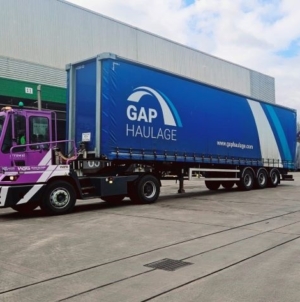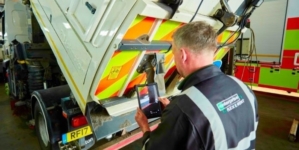-
Nutrivend selects Forterro’s Orderwise to support online expansion and streamline operations - April 11, 2025
-
ARROWXL LAUNCHES AMBITIOUS ZERO WASTE ROADMAP - April 8, 2025
-
THE BCMPA’S NEW CAMPAIGN DRIVES OUTSOURCING SUCCESS IN Q1 - April 7, 2025
-
BLACKOUT TECHNOLOGIES TARGETS TELEMATICS-INTEGRATED MOBILE DEVICE BLOCKING TO COMBAT SMARTPHONE DISTRACTION - April 1, 2025
-
OpenADR Alliance announces first OpenADR 3.0 certified products with EVoke Systems, E.ON Energy and Universal Devices - March 25, 2025
-
Growing fulfilment and contract packer appoints new Managing Director - March 25, 2025
-
When is it time to invest in a WMS? Understanding the key trigger points - March 25, 2025
-
eCapital helps Vantage Recruitment on its journey to financial success - March 24, 2025
-
Hugo Beck Celebrates 70 Years of Packaging Innovation with Open House Events - March 20, 2025
-
PROLOG FULFILMENT SUPPORTS LUNA DAILY’S COMMITMENT TO BETTER BODY CARE FOR ALL WOMEN - March 19, 2025
Positive Reception For Brexit White Paper From Logistics Industry.
The Freight Transport Association (FTA), the leading industry body in the logistics sector, has reacted positively to the content of today’s White Paper outlining the government’s intended future relationship between the UK and European Union after Brexit. As James Hookham, FTA’s Deputy Chief Executive says, the solutions outlined in the paper offer encouragement for those tasked with keeping the nation’s complex supply chain moving freely, but will require a similar level of imagination and optimism from the UK’s European trading partners:
“Today’s White Paper includes positive proposals for many areas which have caused concern for the logistics industry, and should give businesses, which have been worried about a lack of clarity over future trading arrangements, some level of reassurance. It is now Europe’s turn to step up and deliver a similarly supportive, encouraging plan which will minimise the barriers to continued frictionless trading arrangements as the UK leaves the EU.”
However, as Mr Hookham continues, there are still areas of concern which will need urgent attention if trading between the UK and the EU is to continue to operate with minimal disruption:
“Today’s White Paper gives encouragement to those of us charged with keeping the UK’s shops, schools, businesses and manufacturers stocked with the products and raw materials they need on a day by day basis. However, the devil is always in the detail, and while FTA recognises the efforts made by the government to address the needs of the logistics industry in today’s document, there is still much we need to understand on the practicalities for future trade.
“Of most concern is a lack of clarity over how road transport will be able to operate in the future – a permits system is mentioned in passing, but is really not an option if the thousands of vehicle movements which currently happen to and from the Continent and Ireland are to continue with minimal delays. There is no point in having the most facilitated customs agreement in the world if a permits quota means that trucks cannot move goods freely across borders.
“The paper needs to provide more clarity on the status of skilled EU workers after Brexit – with more than 45,000 HGV drivers from Europe currently working in the UK, loss of their working status would leave the industry severely exposed. The framework for the mobility of workers between the UK and EU needs more detailed explanation, to provide reassurance to employers and those relying on continuity of deliveries for the resilience of their own businesses.”
On behalf of UK logistics, FTA has been pressing the government for clarity on eight key points of concern over trading arrangements, and Hookham is encouraged by the response to this pressure in today’s White Paper:
“Finally, the UK government has recognised the needs of the logistics sector in its plans to keep Britain trading after Brexit. There is still much to achieve, but what now needs to happen is for the EU to step up to the plate and match the UK government’s boldness with similar imagination. If that can happen, trading relationships between the UK and the EU can continue to the benefit of businesses on both sides of the border.”
Efficient logistics is vital to keep Britain trading, directly having an impact on more than seven million people employed in the making, selling and moving of goods. With Brexit, new technology and other disruptive forces driving change in the way goods move across borders and through the supply chain, logistics has never been more important to UK plc. A champion and challenger, FTA speaks to government with one voice on behalf of the whole sector, with members from the road, rail, sea and air industries, as well as the buyers of freight services such as retailers and manufacturers.
[tpr-boilerplate company=’52’]

































